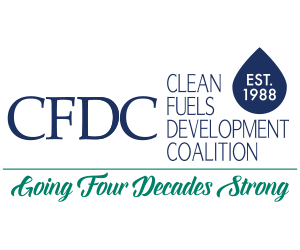Speaking before the World Ethanol and Biofuels Conference in Brussels, Belgium last week, the Clean Fuels Development Coalition’s Doug Durante said Aviation and Marine Applications may be future market opportunities, but the gasoline market presents the greatest untapped potential to expand ethanol demand.
Durante told delegates that the highest value and the highest return for ethanol is to provide clean, low carbon octane for the growing premium market and at current volumes we are only scratching the surface. “In the U.S. nearly 40% of our total energy use is petroleum and 70% of that is used in light duty vehicles. Whether the priority is to reduce carbon emissions or simply to expand fuel supplies, much higher ethanol blends can be implemented immediately.”
He also suggested the European concerns over food and land use are misplaced, telling the conference that US farmers are growing more feed corn on less land with less fertilizer inputs. EU constraints on blend volumes keep them from growing the market and the economic, environmental, and health benefits that can be achieved.
Durante presented data showing how higher octane with ethanol volumes in the 25-30% range can meet or exceed projected benefits from electric vehicles. In comments provided to the US EPA, a CFDC-led coalition said an E30 program could reduce GHG by 1.16 million tons, five times more than EPA EV proposals, faster, and at far less cost.
“We are seeing reality set in both in the European Union and the US that electric vehicles are simply not going to provide the emission reductions they promise. Globally we will continue to use hundreds of trillions of gallons of gasoline, and it will be years, if ever, before EVs can realize the environmental benefits higher ethanol blends can provide right now.”
Durante noted the movement to higher blends in the US is being led by America’s farmers and the industry is uniting behind legislation such as the Next Generation Fuels Act. This legislation would increase octane levels and ensure a role for ethanol while requiring that auto warranties honor these higher blends.
India, Viet Nam, the Philippines, and other countries are already at 20% blends, he said, and Brazil is working with 40% volume hybrids. He also reminded the conferees that the ethanol story cannot singularly be about carbon as it pertains to climate. Ethanol replaces some of the most harmful toxic and carcinogenic compounds in gasoline, so the public health benefits must continue to be emphasized.
